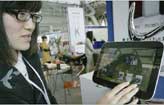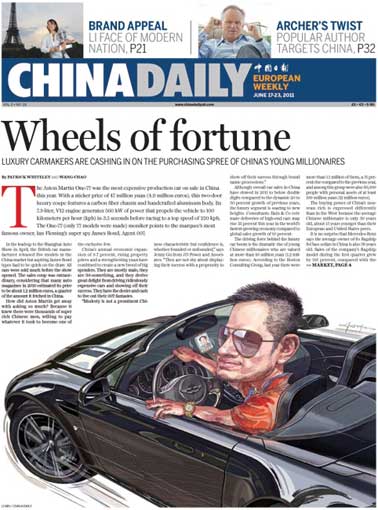Web Comments
Media literacy shows governance quality
Updated: 2011-06-22 14:34
(people.com.cn)
In a sense, we are in an era of media events.
The public's concern about society and the government is generally expressed through media, such as reading newspapers, transmitting information through micro-blogs and commenting on news. Symbols, such as the "South China Tiger," "hide and seek," "fishing enforcement" and the "forced demolition in Yihuang County," have quickly become popular nationwide through media and remind people that today, the government's approach and philosophy are often presented, disseminated and even enlarged through the media. The era of "media control" has come.
When openness and transparency have gradually become a consensus of governance and notification, participation, expression and supervision have become basic rights of citizens, people can see that media awareness at various levels of government is also rising. The news release system has steadily improved; PR representatives constantly host various press conferences; more and more Party and government cadres reply on message boards; micro-blogs for more than 1,700 government agencies timely issue authoritative information, and various leaders and cadres have become more confident and at ease when they are in the spotlight. This is really a gratifying change.
Certainly, the changes are a process. Despite the overall development and progress, some local governments have exposed many shortcomings in dealing with media, either ignoring media or regarding media claims as embellishments. Many rarely-updated "dormant government websites" show some local governments' weak awareness of using media. The local governments either shun media because they lack the approaches to guide media, or they fear media and consider the media to be troublemakers. They try all means to keep media agencies from exposing the facts and guard against reporters as seriously as they prevent fire and thefts.
If local governments just attempt to block information instead of developing necessary capabilities to use media and respond to public concern, they will create an insurmountable "gap" between the government and the people.
Public opinion should not be regarded as "a way to smear enemies," and media agencies serve as a social early warning tool to cover hot events and sensitive issues. Although media agencies will perhaps embarrass some local governments for some time, they can help the governments to comprehensively understand public opinions and keep them alert. In the long run, media agencies will play great roles in preserving the interests of the people and advancing society, which is just like what a provincial-level Party secretary said, "Media supervision is also a kind of positive coverage."
China is at a crucial stage in its social transformation. With the help of the media, government officials will find it easier to explain policies, ease public concerns, communicate ideas, seek common ground and solve problems. This is exactly why the central government has stressed that the media is an important resource and tool for governing the country, and has urged government officials at all levels to treat the media nicely and to enhance their ability to manage and use the media.
In the information-rich era, government officials need to develop news sensitivity to unexpected incidents and learn to use the media wisely to improve governance. Slow or inappropriate responses to sensitive incidents will make things worse, and damage the government's intangible assets including public trust.
For government officials, media literacy is not only a kind of ability but also a state of mind. With an attitude of equality, an official will have no such arrogant bureaucratic tone like "Am I speaking for the Party or the people?" With an attitude of respect, an official will have no such perfunctory discourtesy like "I do not to have the time to care." With an open mind, an official will face the problem directly instead of "putting the reporter on a blacklist" while being monitored. With a straight-out mind, an official will conduct self-examination instead of "charging somebody for defamation" while being criticized.
In a word, the media is a communication platform between the government and the public, and an official's attitude towards the media is also his attitude towards the public, as well as the reflection and verifier of his administrative level and ideas.
E-paper

Pret-a-design
China is taking bigger strides to become a force in fashion.
Preview of the coming issue
Franchise heating up
Party place
Specials

My China story
Foreign readers are invited to share your China stories.

Mom’s the word
Italian expat struggles with learning English and experiences the joys of motherhood again.

Lenovo's challenge
Computer maker takes on iconic brand apple with range of stylish, popular products
